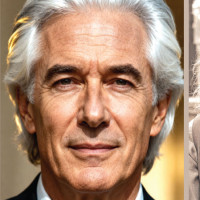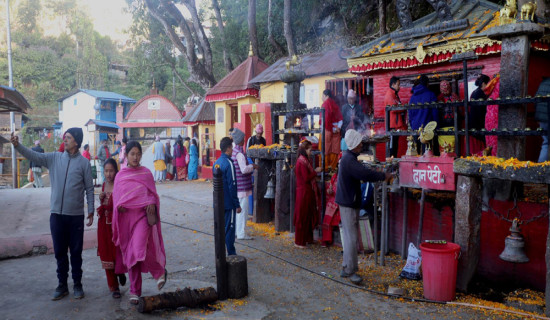- Friday, 21 November 2025
What’s There In A House?
There is an adage in Nepali society: “A man who is yet to build his own house and a woman who is yet to bear her own child have yet to see the full spectrum of life.” For generations, this saying has been internalised almost as a cultural truth. But it is time we questioned whether this mindset is helping us live fuller lives or quietly tethering us to perpetual dissatisfaction.
In today’s Nepal, owning a house has become less of a need and more of an obsession. Families stretch themselves thin, sacrificing comfort, leisure, and relationships to achieve the dream of a house with their name on it. Children are pressured into financial compromises, couples quarrel over expenses, and young breadwinners defer the joys of living until “the house is done.” Yet, when the house finally stands complete, the long-awaited peace rarely arrives. The satisfaction is fleeting. Before long, fresh anxieties emerge: adding another storey, redoing the façade, fixing the interiors. The house becomes not a source of contentment, but a breeding ground for endless longing.
House a status
Why does society attach so much pride to house ownership? Because in the eyes of many, the house is not about shelter – it is about status. It shields people from social ridicule. A man who lives frugally to the point of stinginess, yet owns a house, is spared mockery. In addition to this, a family that owns a house but rents elsewhere is still protected from criticism because they can always point to “their” property. Meanwhile, tenants without houses are judged harshly, even if their lives are comfortable, decent, and dignified.
This misplaced pride corrodes our sense of worth. We forget that the land we call ours is but a speck on Earth, which itself, as astrophysicist Carl Sagan reminded us, is just a “pale blue dot” in the vast cosmos. To feel superior because of a house – or inferior for the lack thereof – is to misunderstand the true measure of life.
The obsession with houses also distorts Nepal’s economy. Land prices skyrocket because everyone is chasing ownership, and the land mafia thrives. Some families with large ancestral holdings feel no urgency to work productively, relying instead on inflated property values or house rentals for income. Young people, too, are lured into this passive dependency, believing land ownership guarantees financial security.
This culture undermines the foundations of a healthy economy. Countries that prioritize production and infrastructure create employment, foster innovation, and reduce inequality. But when land speculation becomes the primary path to security, creativity and hard work decline. Worse still, the inflated cost of land spills into commodity prices, widening disparities and making everyday life more expensive. To attest to this, the Tulsipur sub-metropolitan's food quality inspection team recently raided a food joint that had been serving food to its customers in a starkly unhygienic manner, ahead of festivals. The raid officers, pointing at the scurrying cockroaches across the uncovered food, asked the shop owner if she had any guilty conscience about serving people such food. Her response was very self-centred and irresponsible. She said that she had to pay Rs. 45 thousand per month in rent and had to cover that at all costs. Isn't it an example of the aforementioned spillover of unchecked land prices and consequent rental costs apart from an unscrupulous business practice?
Nepal’s weak rental system worsens the imbalance. With no clear rental laws, tenants remain at the mercy of landlords. Verbal agreements dominate, and landlords can evict tenants on a whim, without requiring legitimate reasons. This legal vacuum makes tenants second-class citizens, vulnerable and insecure. A rational state would govern rentals, protect both landlords and tenants, and tax the business fairly to strengthen public revenue.
Beyond economics, the most damaging effect of house obsession is psychological. Rarely do people who finally build their house express lasting gratitude or contentment. The joy is temporary, and soon their minds shift to what is missing, say, a bigger living room, a modern kitchen, a better neighbourhood, etc. The house becomes a monument not to fulfillment, but to restless desire.
Meanwhile, those without houses–yet blessed with health, livelihood, and a humble attitude–can live rich, meaningful lives. The only barrier is society’s judgment. And make no mistake: that judgment never ends. Even when you own a house, neighbours will find faults–too small, too old, poorly located, badly designed. If your self-worth depends on their remarks, you will never find peace. The irony is stark: the landlord who enjoys “status” may secretly be taking sleeping pills at night, while the tenant judged for not owning a house might be enjoying laughter, music, and contentment within rented walls.
Desperation
This is not an argument against owning a house. Shelter is a necessity. Stability is valuable. But the problem lies in desperation – when we postpone life itself for the dream of a house, when we choose misery and stinginess in the hope of eventual pride. A house should be a means to live better, not an end that consumes our living.
The real question is not, “Do you own a house?” It is: “Are you living meaningfully with what you already have?” Because at the end of the day, joy is not guaranteed by walls and roofs. It is shaped by gratitude, perspective, and the courage to live fully in the present.
So the next time society pressures you into believing that your existence is incomplete without a house, pause and reflect: What’s there in a house, really, if it condemns us to perpetual longing and keeps us blind to the happiness already within reach? A fulfilling life is not built by bricks and mortar – it is built of choices.
(The author mentors students in creative writing at Sanskrit Pathshala, Dang.)















